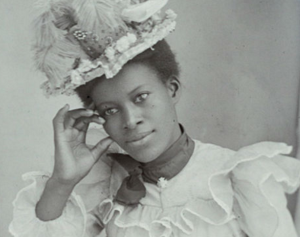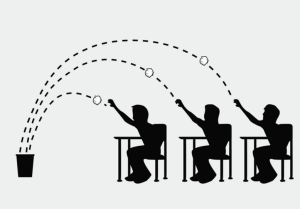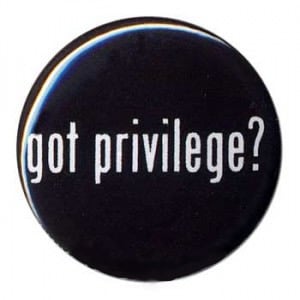I was recently talking to a man about a female friend of his, who had just told him about being sexually harassed at work. He was appalled.
He said, “It makes me so mad. She’s this sweet, Midwestern girl without a bad bone in her body. She just doesn’t deserve it.”
I pointed out that being an assertive, mean, or worldly type would not have made her “deserve” to be harassed either, but this conversation reminded me how common benevolent sexism is – and why it’s one of the hardest forms of sexism to call out.
Benevolent sexism – which is often perpetuated by people of all genders who feel positively towards women that conform to traditional and stereotypical ideas about feminine behavior, and who would never think their own actions had any malicious motivations –refers to discrimination that is couched in favorable terms and which is often presented in ways that express appreciation for women or comes under the guise of protecting or caring about women.
As a result, discriminatory sentiments may be conveyed in seemingly complementary ways. Taken together, these factors make this form of prejudice really hard to recognize and call out.
Yet just because benevolent sexism is so common, and the harm it causes is often unintended, doesn’t mean that the negative impact is any less real.
Studies have found, for example, that in many ways, benevolent sexism is more likely to reinforce women’s acceptance of gender inequality than is overt hostile sexism, which is easier to deride.
It has also been demonstrated that that exposure to benevolent sexism increases people’s justification for discrimination and makes them less inclined to participate in collective action against it.
But because of these complicated – and often contradictory – messages, benevolent sexism can be hard to identify. But one of the best ways to combat it is to recognize how it can play out.
Here are three examples of benevolent sexism and how we can challenge it when we see it occurring.
1. The Idea That Women Are Naturally More Nurturing Than Men
A lot of people deeply believe that women possess certain characteristics that men don’t.
These include being more intuitive, better communicators, more loving and peaceful, and better parents than men.
Such attributes can seem positive, but they reduce women to a stereotype many just don’t fit into. They also strip men of the ability to freely express similar qualities themselves.
As Melanie Tannenbaun explains in Scientific American, stereotypes about women being better parents harm both men who want to stay home with kids and women who don’t.
She writes, “It seems nice enough, but how does this ideology affect the woman who wants to continue to work full time after having her first child…How does it affect the man who wants to stay at home with his newborn baby?”
And ideas like these force people into rigid gender roles, both in the realm of family and beyond.
Indeed, the authors of The New Soft War on Women: How the Myth of Female Ascendance Is Hurting Women, Men, and Our Economy found that in professional settings, while men who take control and get things done are admired, women who do so are often labeled cold and are disliked, which holds them back from getting promotions.
Ultimately, making assumptions about anyone’s character or abilities based on their gender is problematic in multiple ways!
What You Can Do:
A) Let go of your belief in the innate nurturing and/or emotional nature of women.
There are still plenty of people of all genders (feminists included) who subscribe to a “woman as earth mother” view.
But while there is nothing wrong with wanting to be in touch with your emotions, or feel connected to your kids or your body, think about whether you understand this as a personal choice, or if you believe that such qualities are innate in all women.
If it’s the later, consider what this implies about men and about women who don’t conform to your vision.
B) If you parent as an opposite gender couple, don’t deny the father the ability to do childcare based on the belief that he will be worse at it.
And definitely don’t refer to it as “babysitting” when he is with the kids alone!
C) In the workplace, check comments about coworkers who you think are “bitchy” or aggressive.
Would you say the same thing about an outspoken male colleague? If not, then it probably doesn’t apply to your female colleague either.
2. The Expectation that Women Should Be Super-moms
Though a lot of sexism on TV is really obvious, some of the most sexist media occurs on shows that claim to be “family friendly.” It can also be found on shows that present themselves as progressive or counterculture.
One example of this is the sitcom Modern Family, which focuses on the foibles of an extended family with a varied make-up. But despite trumpeting its “modern” cred, the show has problems.
As Jaclyn Munson writes of the Claire Dunphy character,
“As she tries to rein in her clownish husband Phil and keep the kids in check, their defiance and outlandish errors are met with viewer laughs. Meanwhile, Claire is characterized as a nag for trying to maintain normalcy…The family’s attitude toward Claire is flippant and disrespectful, despite her always showing up to save their sorry butts…Claire’s patience and dedication to her family are taken for granted, suggesting that women are expected to deal regardless of how they’re treated, because that’s just the way it is.”
Claire is like a lot of TV moms. They may be a little harried, sure, but they also call the shots (without ever letting hubs realize it), keep the kids and the house in order, all while staying slim and pretty, and fixing the mistakes of an incompetent, lazy father who still ultimately gets his way.
But their punishment for keeping everything together is that they are painted as annoying super-moms who we are supposed to roll our eyes at, but who are we are also supposed to know are needed to keep everything in order.
These days, there are more and more female characters who buck this trend, but Modern Family is by no means the only place where women are depicted with benevolent sexism – and where the same old narratives about them are still regularly churned out.
What You Can Do:
A) Explore this list of the most feminist TV shows on now from writers Em & Lo.
Sure, many of these aren’t perfect. And they sure aren’t marketed as “family friendly.” But they tend to avoid a lot of the pitfalls of programs that seem more innocent, like Modern Family, or The Big Bang Theory – a show which, in the typical sitcom vein, reduces women to a stereotype: in this case, either being attractive or intelligent, but never both at the same time.
B) For facts, figures, and tools to effect change, check out Geena Davis’ Institute on Gender in the Media.
This has a lot of good gender analysis and research on media, and also offers curricula for educators.
C) Apply the Bechdel Test to the media you consume.
This starts with the basic premise that a movie must feature at least two women who talk to each other about something other than a man in order to pass.
If you haven’t already tried it out, you’ll be amazed at few actually make the cut.
3. The Belief That It’s Men’s Responsibility to Take Care of Women
There have been plenty of challenges to patriarchal systems, but one area where it is still hard to change opinions is on the subject of men’s duties towards women.
For a long time, this view was used as a justification for paying women less than men.
Really, it wasn’t that long ago that employers would openly explain pay differences between male and female employees with the excuse that a man had to support his family with his paycheck, while a woman’s earnings were just a supplement to whatever hubby or daddy deigned to pass her way.
These days, most employers know that if this is why they pay women less, they sure can’t come out and say it. But what people don’t feel the need to hide is their attachment to what many see as expected signs of male respect for women.
For example, a lot of women say that they appreciate things like having a male date pay for dinner, give up a seat on the subway, hold open a door, or carry heavy things. And a lot of men say they like doing these things for women.
In fact, plenty of Everyday Feminism readers have strong thoughts on this issue.
As one commenter wrote in response to an article on chivalry on this site, “I want my man to be chivalrous. It makes me feel adored.”
Another said, “Opening doors and paying the check is called being a gentleman, there’s nothing wrong with it. I think most women would agree.”
A third added, “I like the fact that my husband throws himself between me and danger. Just saying.”
Many men, on the other hand, bristle at the notion that they are being sexist when they think they are being thoughtful.
A male commenter on the same piece declared, “Chivalry comes about when men respect women. It’s not our way of politely insulting you or making you feel belittled, in fact, it’s just the opposite.”
A different one pondered, “How can someone doing something nice for another person be anything but good?”
The thing is, these are defensive reactions that miss the real point.
There is nothing inherently wrong with appreciating a seat or having a meal paid for, just like there is nothing inherently wrong with giving up a seat or paying for a meal.
The problem is when these things are done by someone because they think that women are helpless or incompetent and in need of men’s protection. That’s really different from doing something to be kind or helpful or considerate.
One of the things that makes it hard for people to acknowledge the possibility that benevolent sexism drives some of these interactions is that people fear that doing so will deny the fact that men can be kind to women simply because they are decent, compassionate, loving people, and rather are only motivated by discriminatory motives and power.
The reality is that identifying inequality where it truly exists doesn’t unnecessarily impose it on egalitarian situations where it doesn’t.
What You Can Do:
A) Don’t believe the claims that we already have strong enough equal pay laws, and support things like the Paycheck Fairness Act which seeks to close the loopholes of earlier legislation.
B) On an interpersonal level, ask yourself if your intergender interactions are based on respect, or whether they are based on expectations about male and female behavior.
If it’s the latter, you might want to challenge some of your daily practices.
That doesn’t mean letting a door slam in a woman’s face if you’re a man, or never letting a man pay for a date if you’re a woman, but it does mean broadening your understanding of how such interactions can play out.
C) If you’re a man who balks at the idea of asking a woman to help you with a physical task, or who would never expect a woman to pick up the tab, see how it feels to accept these offers when they arise.
If you’re a woman who’s used to man paying for you, try not to take an offer to split the check as a sign that a guy isn’t interested in you romantically. Or just see what happens if you offer to cover the bill.
Maintaining the Status Quo – With a Smile
Part of what makes benevolent sexism so harmful is also what makes it so hard to identify, namely that for the most part, it’s done with good humor, in an attempt to be kind, and without apparent malice.
But therein lies the problem.
As researchers from Northwestern University write in a paper in the journal Sex Roles,
While many people are sensitive to sexist verbal offenses, they may not readily associate sexism with warmth and friendliness. Unless sexism is understood as having both hostile and benevolent properties, the insidious nature of benevolent sexism will continue to be one of the driving forces behind gender inequality in our society.”
Ultimately, sexism comes in many forms, but as benevolent sexism reminds us, while some of those forms might be subtle, the damage that is wrought by it is anything but.
[do_widget id=”text-101″]
Ellen Kate is a Contributing Writer for Everyday Feminism. She’s a health educator, sometime writer, and mom. She has worked at Manhattan’s Museum of Sex, developed sex education curricula in Mumbai, India, and run HIV prevention programs for at-risk teens in the South Bronx. Currently, Ellen teaches human sexuality at Brooklyn College (something she also did at Rutgers University). Ellen also runs About.com’s LGBT Teens site. More of Ellen’s writing can be found here. Follow her on Twitter @ellenkatef.
Search our 3000+ articles!
Read our articles about:
Our online racial justice training
Used by hundreds of universities, non-profits, and businesses.
Click to learn more





















